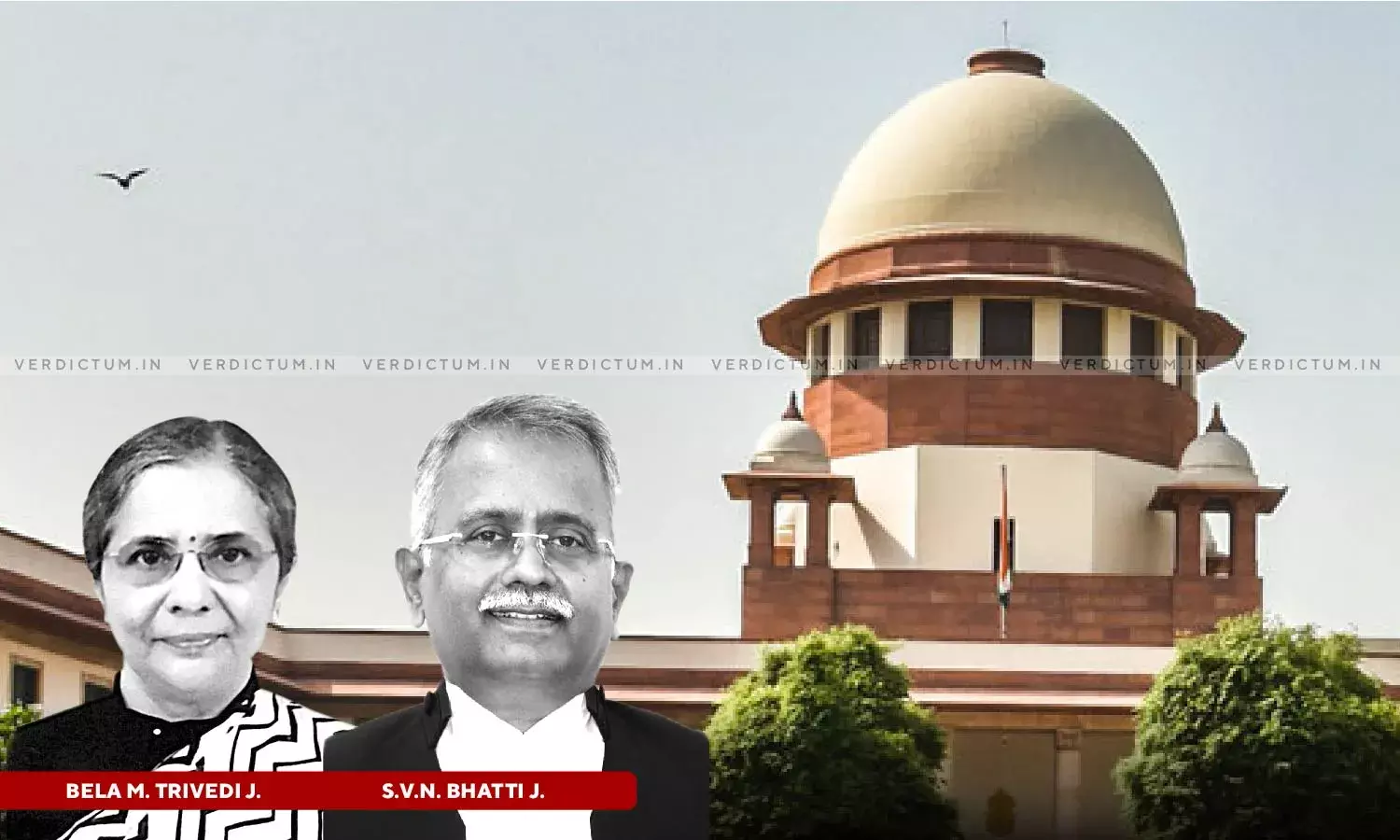Election Petition Seeking Only Recount Of Votes Must Align With Rule 6 Of Chhattisgarh Panchayat Nirvachan Niyam: Supreme Court
The Supreme Court while dismissing an appeal filed against the order of the High Court which had allowed recounting of votes for the election of a Sarpanch observed that an Election Petition seeking only the relief of re-counting of votes, without seeking the declarations outlined in Rule 6, Chhattisgarh Panchayat Nirvachan Niyam, 1995 would not be tenable.
A two judge Bench of Justice Bela M. Trivedi and Justice S.V.N. Bhatti held,
“Election contest is not an action at law or a suit in equity but purely a statutory proceeding, provision for which has to be strictly construed. The petitioner having failed to make any application in writing for re-counting of votes as required under Section 80 of the Nirvachan Niyam, 1995, and having failed to seek relief of declarations as required under Rule 6 of the Rules of 1995, the Election Petition filed by the petitioner before the Sub Divisional Officer (R) seeking relief of re-counting of votes alone was not maintainable.”
In this case, the appellant had filed an appeal to challenge the legality and validity of a judgment and order passed by the High Court of Chhattisgarh. The High Court, in a writ appeal, had allowed the recounting of votes for the election of a Sarpanch (village head) in the Gram Panchayat of Semarkona Block, District Mungeli, Chhattisgarh. This recounting was ordered after the Election Petition filed by the appellant (petitioner) claimed that there was insufficient light at certain polling stations during the election.
Advocate Sameer Shrivastava (AOR) appeared for the Appellant and Advocate Abhinav Shrivastava (AOR) appeared for the Respondents.
The central legal question before the Apex Court was whether the Election Petition filed by the petitioner seeking only a recount of votes, without invoking Rule 6 of the Rules of 1995, was maintainable.
The Court discussed the relevant sections of the Chhattisgarh Panchayat Raj Adhiniyam, 1993, and the associated rules known as the Chhattisgarh Panchayat Nirvachan Niyam, 1995. It highlighted the specific provisions that dealt with the process of counting votes, recounting votes, and the contents and relief that can be claimed in an election petition.
The Court referred to the case of Sohan Lal vs. Babu Gandhi and Others, which dealt with similar provisions in a different state, and held that there is no prohibition in the Act or rules preventing a court or tribunal from directing a re-count of votes. However, the Court clarified that the relief sought in an Election Petition must be in line with the prescribed rules, specifically Rule 6 of the Chhattisgarh Panchayat Nirvachan Niyam, 1995. This rule outlines the relief that can be claimed by a petitioner, including a declaration that the election of candidates is void and a further declaration that the petitioner or another candidate has been duly elected.
“In view of the said Rule 6, there remains no shadow of doubt that in the Election Petition filed under Section 122 of the said Act, the reliefs claimed have to be in consonance with the said Rule 6 of Rules of 1995. It is true that as laid down in Sohan Lal’s case, the Court or Tribunal may direct recounting of votes in the Election Petition, depending upon the evidence laid down by the parties in the Election Petition, nonetheless the Election Petition seeking the relief for re-counting of votes only, without seeking any other reliefs i.e., declarations as contemplated in Rule 6, would not be tenable in the eye of law.”
The Court concluded that an Election Petition seeking only the relief of re-counting of votes, without seeking the declarations outlined in Rule 6, would not be tenable. The petitioner needed to follow the prescribed procedure, including filing an Election Petition with appropriate declarations and evidence. The Court emphasized the principle of strict construction when interpreting election laws.
Ultimately, the Court dismissed the appeal, affirming that the Election Petition seeking re-counting of votes alone was not maintainable in this case.
Cause Title: Dharmin Bai Kashyap v. Babli Sahu & Ors.
Click here to read/download Judgment




